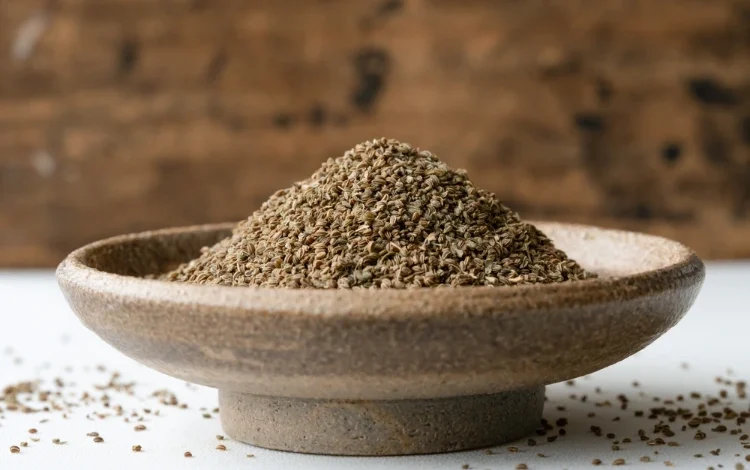7 Natural Dietary Xanthine Oxidase Inhibitors to Reduce Uric Acid
Discover effective Natural Dietary Xanthine Oxidase Inhibitors to lower uric acid levels naturally.

To help lower your uric acid consider adding the following natural foods, herbs, and beverages into your diet. These options are known to inhibit xanthine oxidase (XO) – the enzyme that produces uric acid – and have scientific backing. Each is easily incorporated into daily meals or drinks:
1. Green Tea (and Black Tea):
Rich in catechins and gallic acid, green and black teas can block xanthine oxidase, thereby reducing uric acid production. In fact, gallic acid in tea has one of the strongest XO-inhibiting effects, outperforming even other tea polyphenols. Enjoy 2–3 cups of unsweetened green or black tea daily (hot or iced). For example, have a cup in the morning instead of sugary beverages, or use cooled green tea as a base for smoothies. This provides a steady intake of XO-inhibiting compounds and can be a simple, soothing addition to your routine.
2. Coffee:
Moderate coffee consumption is associated with lower uric acid levels. Coffee contains chlorogenic acid (a polyphenol) and low doses of caffeine, which together inhibit xanthine oxidase and increase uric acid excretion. Essentially, chlorogenic acid in coffee acts similarly to allopurinol by occupying XO’s active site, thus preventing the formation of uric acid. If you tolerate caffeine, one or two cups of coffee a day (preferably black or low-sugar) can be beneficial. For instance, you might replace a mid-morning snack with a cup of black coffee or have it with breakfast. The diuretic effect of coffee’s polyphenols also helps flush out uric acid, but be sure to stay hydrated.
3. Tart Cherries (and Cherry Juice):
Tart cherries are famed as a home remedy for gout – and for good reason. They are high in anthocyanins, which not only have anti-inflammatory effects but may also inhibit xanthine oxidase. Studies have observed that regular tart cherry intake is linked to reduced serum uric acid and fewer gout flares. Cherry compounds can increase urate excretion and even showed a synergistic effect with allopurinol in research. You can drink an 8-ounce glass of 100% tart cherry juice daily (for example, in the morning or post-dinner), or eat a handful of fresh or frozen tart cherries as a snack. Alternatively, concentrated tart cherry capsules are available online. This sweet-tart fruit is an easy dessert swap that may help control uric acid levels.
4. Apples and Onions (Quercetin-Rich Foods):
Apples (especially with skins) and onions are high in quercetin, a flavonoid that inhibits xanthine oxidoreductase – the final step of uric acid synthesis. Quercetin has been shown in human studies to lower blood uric acid; for example, 500 mg of quercetin daily (equivalent to the quercetin in about one large red onion or several apples) significantly reduced serum urate in pre-hyperuricemic men. To get quercetin through diet, try eating an apple a day (as a snack or chopped into oatmeal) and use onions generously in cooking (soups, salads, stir-fries, etc.). Red onions, in particular, are very high in quercetin. By incorporating these foods regularly, you’ll get a consistent dose of this natural XO inhibitor alongside vitamins and fiber.
5. Celery and Celery Seeds:
Celery has long been used as a folk remedy for gout. Luteolin, a flavonoid abundant in celery (particularly in celery seeds), is a potent xanthine oxidase inhibitor. Research confirms that celery seed extracts can lower uric acid and block XO activity in animal models of hyperuricemia. You can integrate this by sprinkling celery seeds (about ¼ teaspoon) into soups, stews, or even smoothies – they have a mild, earthy flavor. Alternatively, steep celery seeds in hot water to make a tea, or take a celery seed extract supplement (readily available online). Eating fresh celery stalks is healthy too (as snacks or in salads), though the seeds have a higher concentration of luteolin. For example, you might add a pinch of ground celery seed to a vegetable juice or morning eggs for an extra anti-gout boost.
6. Ginger:
Common ginger root contains bioactive compounds (gingerols and shogaols) that have XO-inhibiting and anti-inflammatory properties. Notably, 6-gingerol in ginger has been shown to inhibit xanthine oxidase, thus interfering with the formation of uric acid. While ginger is often used to ease nausea or arthritis, it may also help keep uric acid in check by reducing production and oxidative stress. You can easily use fresh ginger in your diet: grate it into stir-fries, steep slices in hot water for a soothing ginger tea, or add it to smoothies and marinades. Even ginger powder can be used in curries or sprinkled on roasted vegetables. For instance, try drinking a cup of ginger tea after meals – not only is it calming for digestion, but it also provides those XO-inhibiting compounds in a warm, caffeine-free beverage.
7. Turmeric:
Turmeric (the golden-yellow spice) contains curcumin, which emerging research suggests can inhibit xanthine oxidase and also act as a uricosuric, helping the kidneys excrete uric acid. This dual action means turmeric might reduce uric acid both by producing less of it and by getting rid of it faster. In one clinical trial, curcumin supplements lowered serum urate about 7% (though results were comparable to placebo, indicating more research is needed). Regardless, turmeric’s anti-inflammatory benefits are well known and can be useful if you have any gouty joint pain. To incorporate turmeric, add ½–1 teaspoon of turmeric powder to your cooking daily – for example, stir it into soups, stews, or rice, or use it to make “golden milk” (turmeric latte) with milk/non-dairy milk and a pinch of black pepper (which boosts curcumin absorption). You can also take curcumin capsules available online for a concentrated dose. Be consistent; using a bit of turmeric every day – such as in scrambled eggs or a smoothie – can provide a steady supply of curcumin. (Tip: combine with black pepper and a healthy fat like olive oil when cooking, to enhance absorption of curcumin.)
Practical Tips: Aim to incorporate several of these options in your daily diet for a combined effect. For instance, you might start your day with a cup of green tea or coffee, enjoy an apple as a snack, use onions and ginger in your lunch/dinner recipe, and have a glass of tart cherry juice in the evening. Sprinkle in turmeric and celery seeds while cooking your meals. By using these natural xanthine oxidase inhibitors regularly, you can gradually lower uric acid levels.
Always remember to monitor your levels and consult with a healthcare provider for personalized guidance, but these additions are safe, accessible steps that leverage nature’s own XO inhibitors.








